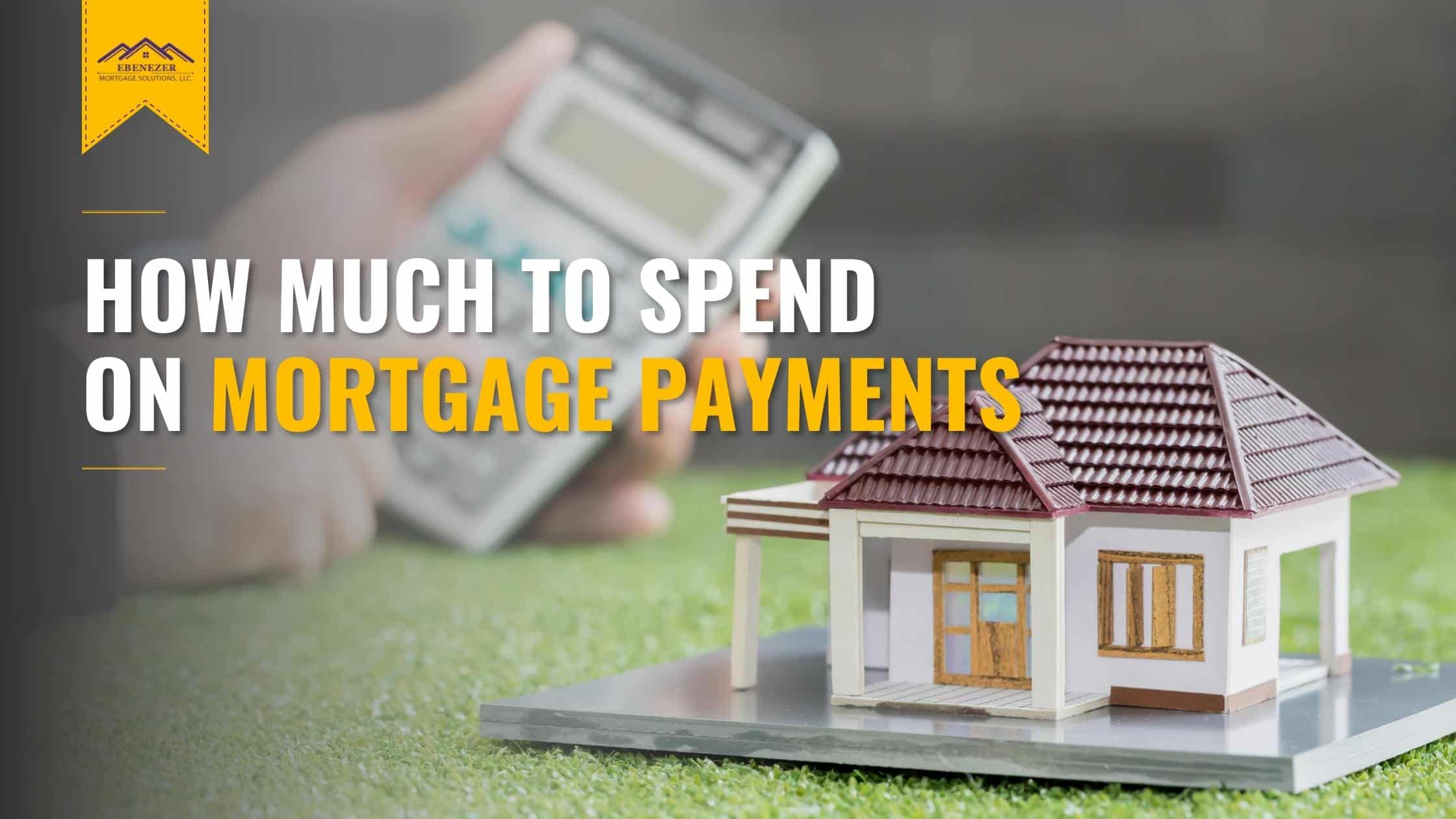Your Most Trusted Partner in Home Purchase Loans & Refinance Loans
Open Hours: Mon. - Fri., 9:00 a.m. - 6:00 p.m.

One of the challenges that homebuyers face is determining how much to spend on mortgage payments. If the payments are just right, you'll have enough in your monthly budget to use on discretionary expenses such as vacations or buying a car. But if your payment is too high, you might end up finding yourself "house poor," struggling to keep up with the true cost of owning a house.
In this article, we're going to go through the factors that you need to consider to determine how much you should spend on monthly mortgage payments.
Home loans involve releasing a significant amount of money. So even if there's a loan limit set for mortgage programs such as theconventional loan and FHA loan, it's still up to the lenders to decide how much to give a borrower.
The loan amount and terms that the lender will give you will greatly depend on the factors we're going to mention below. So in order to be offered better terms, which could affect your monthly payments, make sure to have the following factors straightened out.

Having more income would generally mean that you can afford more, right? However, lenders are weighing more than just the amount of your salary. They are also interested in the stability of your income.
They do this by checking your work history, your bank statements, and your tax returns. If you are self-employed, you might also need to provide your profit and loss statements.
Cash reserves refer to any amount of money that you can immediately access. This includes checking or savings accounts, investments, and trust accounts.
Lenders would often require at least six months' worth of cash reserves. This is to ensure that you'll be able to pay for the down payment, closing costs, and the monthly mortgage even during an emergency.
Lenders are also going to check if you can take on another debt responsibility by calculating your DTI or debt-to-income ratio. DTI is the percentage of your monthly income that goes into paying off monthly debts.
Having a high DTI ratio would mean that you have more debt than you can handle. And a lower DTI would show that you are capable of managing your monthly debt payments well.
Lenders would require different DTI ratios depending on the loan type you choose. But ideally, lenders would want to see a maximum DTI of 43%.
Your credit score, along with the other details in your credit profile, could affect your chances of qualifying for a loan. Lenders check your credit profile to see how you manage previous debts and use this knowledge to assess your financial behavior.
Additionally, your credit score also affects the loan rates you get, which in turn affects how much you pay for your mortgage.
Having higher monthly mortgage payments would also mean less money to spend on things you enjoy. This might also mean more pressure to keep up with the payments or else you might end up losing your home.
To help you with this, here are some things you can do to have lower monthly mortgage payments.

As much as you can, aim for a 20% down payment. Having 20% down would keep you from paying the mortgage insurance.
For a conventional loan, you'll be paying for a PMI (private mortgage insurance) which will cost about 0.5 - 1% of your loan amount per year. Thankfully, PMI will automatically cancel once your mortgage balance reaches 78% of your home's appraised value.
With FHA's MIP (mortgage insurance premium), you'll be paying an upfront fee of 1.75% of the loan amount and an annual fee of 0.45 - 1.05% of the loan balance. MIP, however, will stay for the life of the loan. You can only get rid of it if you refinance to a conventional loan. But if you put 10% down, you'll have to pay MIP for just 11 years.
Lenders would offer different mortgage terms depending on your creditworthiness or on what type of loan you have. Usually, you can choose from either a 15- or 30-year term. The longer the length of your mortgage term, the smaller your monthly mortgage payments would be. But keep in mind that this will mean you'll be in debt for a much more extended time.
Having a higher credit score would generally get you approved for lower rates. And with lower rates, you'll also have lower monthly payments. So it would be a great move to improve or build your credit score before you start applying for a loan. Paying your bills on time and disputing errors on your credit report are some of the things you can do to increase your credit score.
The tips mentioned above should be done before you start applying for a home loan. But what if you are already paying for a mortgage? Or what if you don't want to get a longer loan term? One of the options you can choose is to refinance your mortgage to a lower interest rate.
However, to refinance, lenders would often want borrowers to have earned at least 20% equity on the home, improved their credit score, and have paid their monthly payments consistently and on time.
Preparing yourself using the key factors we've mentioned might help you in getting lower monthly payments. However, you need to keep in mind that there are other expenses that go into owning a home. This can include property taxes, homeowners insurance, and association fees. Use ourmortgage calculator to have an estimate on how much monthly mortgage payment you can afford.
The home loan application process can be daunting, especially for first-time homebuyers. Working with a mortgage broker can reduce the stress as they will process the application for you, shop for lenders on your behalf, and assist you in choosing the mortgage option that'll suit you best.
So if you're looking for amortgage broker in Tampa, Ebenezer Mortgage Solutions is here for you. Contact us today at (813) 284 - 4027 so we can start working on getting your dream home.
